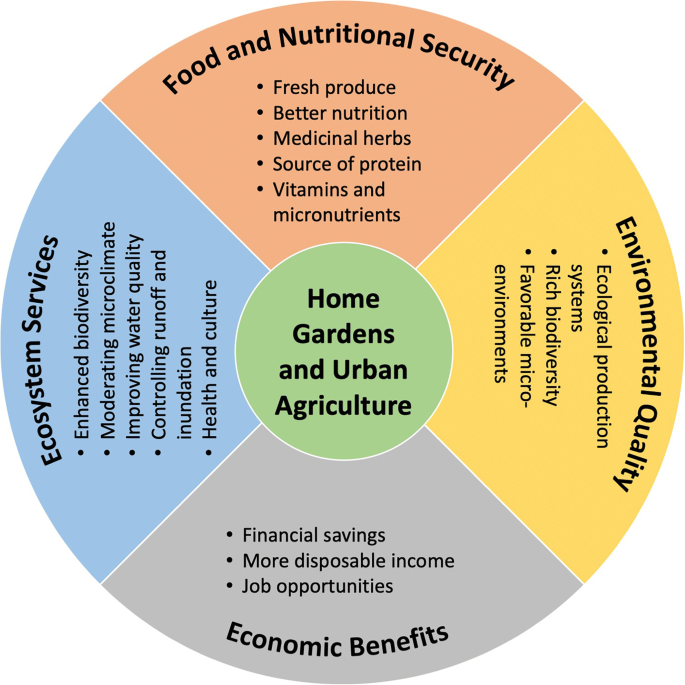10 Easy Facts About City Blooming Shown
Table of ContentsThings about City BloomingThe Ultimate Guide To City BloomingThe Definitive Guide to City BloomingThe Buzz on City BloomingExcitement About City Blooming
Nature has extraordinary results on our physical and mental health, so it's no surprise that a simple succulent on a desktop or some potted natural herbs on a windowsill can quickly improve a space. Take those plants an action further, and you'll go across into the territory of metropolitan horticulture, which brings a lot more benefits to individuals and areas alike.What Are Urban Gardens?Urban gardening, often referred to ascity horticulture, is specified as "the procedure of cultivating green spaces in metropolitan settings. "It incorporates a selection of tasks from metropolitan farming to outdoor patio gardens to neighborhood gardens - home and garden. Urban gardens can be had a tendency by individuals, teams, business, or organizations. The amount and variety of food grown can differ extensively, in addition to the size of the project itself, but urban horticulture initiatives are all rooted in a city setting.
Whether they are composed of a collection of pots on a balcony or a collection of plots on a vacant whole lot, these yards offer greater than food, supplying a host of ecological, economic, and social benefits. Due to the fact that fruit and vegetables is expanded in regional settings as opposed to far-away farms, urban gardening reduces transport requirements, for that reason cutting down on carbon emissions.
The Buzz on City Blooming
Sustainable and organic agriculture gets rid of or lowers much of the ecological damage that would be sustained by commercial agricultural approaches. Eco-friendly areas in cities help decrease the city warmth island effect. Urban agriculture boosts neighborhood economic climates and sustains regional food manufacturers. Area gardening projects frequently use food at little or no cost, which assists strengthen food budget plans and raise food protection. Urban gardens can be devices of social modification that address injustices, systemic bigotry, and area growth issues. Here at Appetite For Modification, we make use of food as a tool to construct wellness, wide range, and social change in North Minneapolis. We bring individuals together to find out, prepare, eat, and expand food, developing adjustment that lasts.
With each other, we can develop well-rooted and growing adjustment!.

The primary lesson we, once again, should learn is that cities are not separated from nature. They are a part of the larger biome in which they lie. As organizers and developers, we are educated to assume holistically. While these disciplines advertise cities as helpful, no city is perfect not also close, and the susceptabilities and affiliations of the worldwide supply chain has actually affected everybody in unanticipated means.
The Ultimate Guide To City Blooming
I will check out designs from the past that promoted metropolitan gardens and gardeners, and reveal what functioned and what did not. I will review the possibilities and obstacles of being a metropolitan gardener, what is needed to establish a yard of your own, and what laws and criteria stand in the way of making cities much better at advertising urban gardens.
The amount of time squandered getting to and from standard offices has been well documented. One notable study ended that prior to the pandemic, Americans lost an average of 54 hours a year commuting. The accumulated negative effects of pollution and anxiety that arise from commuting alone by cars and truck as many Americans do are significant.
The capacity to come to the office for cooperation and culture, and remain home for concentrated job is an idea that saves time, is much better for the setting and is a smarter usage of limited sources. What hasn't yet taken hold is the connection between these changes in behaviors and just how cities might respond.
The Facts About City Blooming Revealed
What are the wellness effects of our cities unexpectedly overdesigned for autos? How can our city framework (roads, utilities) perform better, not just as conduits to relocate people and goods, however as contributors to natural systems? Urban sensations such as smoke, bad water high quality and the 'heat island result' can be alleviated by greening our streets, energizing our cars and growing our parking area.
In a current article in the Wall Road Journal, Richard Florida discussed the sensation of 'zoom cities,' which attract remote employees by developing a picture of a greater top quality of life (eco-friendly practices). He created: "For cities, remote work transforms the focus from enticing business with special offers to enticing talent with solutions and facilities
Urban gardening now has numerous choices to help you expand food any click this link place you have area, such as with container gardening, hydroponic horticulture, and rooftop horticulture. This suggests you can regulate the place where you grow the food, and fret much less regarding environmental problems like dry spell or winter. You can pick what you wish to expand, how you desire to grow it, and where you intend to grow.
What Does City Blooming Do?
Growing mass-produced food with conventional farming techniques takes a lot out of the earth. Beyond the several sources that are made use of on the ranch, the food after that has actually to be delivered from where it is expanded to a store near you. That needs burning a great deal of fuel. On average in the U.S., food is currently transported between 1,500 and 2,500 miles to reach the customer.
